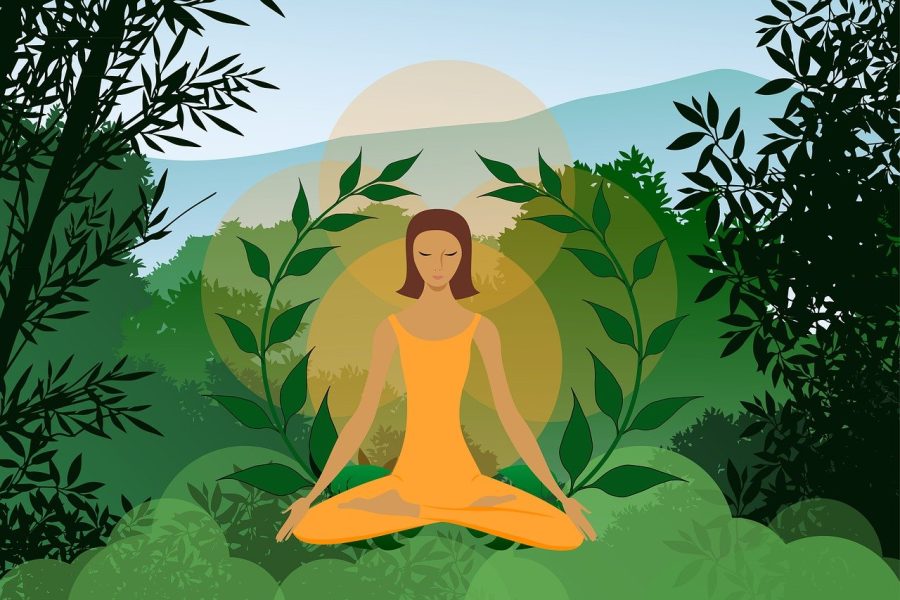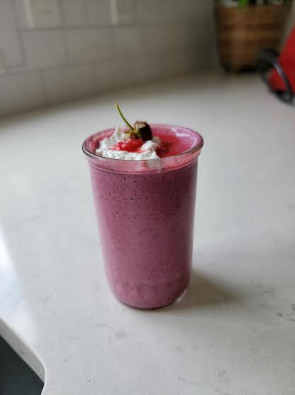Mindfulness Matters
Refocusing Naturally
The COVID-19 pandemic has brought out the best and worst of communities across America. Our nation has observed random acts of kindness from stranger to stranger in an effort to help those struggling during unprecedented times. However, though assisting others is commendable (and often necessary), it is important to also take care of oneself. The needs of others can often take up energy that should be directed towards maintaining personal mental and physical health. It is beneficial for everyone to set aside a time block each day that is reserved for a personal check-in. This can be fit to individual schedules and taste as long as personal time is accounted for daily.
“The Great Outdoors” is labeled as such for a reason. The power nature holds often goes unrecognized due to fear of bugs, cold, and the unknown that the outside world holds. A plethora of scientific research has been conducted to support the benefits of exercise and fresh air. Whether the place is familiar or unknown, simply spending quality alone time in nature can release the stress of everyday life. “Whether at the beach, forest or in a neighborhood park, nature offers a calming effect. And when we combine nature with physical activity, it can help fight depression and anxiety.” claims Erica Price, a therapeutic recreational specialist at Sharp Mesa Vista Hospital.
A list of local parks and hiking trails has been compiled to provide some suggestions for relaxing outside.
- Chestnut Ridge Park, Orchard Park
- Knox Farms, East Aurora
- Hunter’s Creek, East Aurora
- The Erie County
- Canalside, Buffalo
- Birdsong Trails, Orchard Park
These places hold some of the most unrecognized gems Western New York has to offer like the Eternal Flame, a free library, and a community of wildlife not usually observed in town. Exploration of new places can build character and self-confidence while simultaneously releasing negative energy that life sometimes brings.
Vivian Mutty, News/ Opinion Editor
The Benefits of Mindfulness
Now, more than ever, everyone is caught up in their own heads. With the stress of the new coronavirus variant and the end of the semester quickly approaching, many are feeling overwhelmed. Luckily, mindfulness is an easy way to combat negative thoughts and reduce anxieties.
Mindfulness is a state in which a person is aware of the moment they are in. While practicing mindfulness, one should focus on their feelings, physical state, and thoughts without judgment. Mindfulness is a therapeutic way to stay grounded and reduce stress. Exercises are rooted in meditation methods, using breathing techniques, guided imagery, and other relaxing practices.
Studies show that mindful exercises can help reduce symptoms of anxiety and depression. By taking time out of your day to practice mindfulness, you are taking the time to better understand your emotions and resonate with difficult thoughts. This allows you to accept certain feelings, instead of reacting to or avoiding them. Mindfulness is similar to meditation, therefore will help you relax and clear your mind.
By reducing stress, mindfulness also helps improve sleep and reduce chances of heart disease. In one study, researchers used two groups of people with prehypertension. One group took a course on mindfulness along with their drug treatment, and the other took part in a program on muscle relaxation along with their own drug treatment. It was found that the mindfulness group had significantly reduced their blood pressure compared to those in the muscle relaxation program. The American Heart Association even states that although heart-related mindfulness research is in its early stages, there’s enough evidence to say mindfulness is useful when reducing the risk of a coronary disease.
Because mindfulness is a state of living in the moment, it also helps increase the quality of your well-being overall. By practicing mindfulness, you build a pattern of enjoying the pleasures of life, allowing yourself to be fully engaged, and being able to overcome difficulties.
Mindfulness is a useful skill to practice to keep yourself grounded in challenging times.
Mindful.org is a helpful website full of resources if you’re interested. Visit to learn the basics of meditation, helpful mindfulness techniques, and guided meditations!
Sources:
https://www.takingcharge.csh.umn.edu/mindfulness-mental-health
https://www.mentalhealth.org.uk/a-to-z/m/mindfulness
https://www.mindful.org/five-ways-mindfulness-meditation-is-good-for-your-health/
Mia Pandža, Editor-in-Chief
Boosting Your Serotonin Level
As midterms approach, it’s important to find ways to stay calm and relax from the stress of studying. For every person, a different set of activities works; for me, it’s reading, longboarding, walking, and listening to music. On the days when I feel emotionally exhausted I longboard around Orchard Park, my favorite music in my ears. During recent years I created a playlist where I compile different kinds of music that make me happy: Russian Pop, Rock, Independent music, etc. As far as books go, my goal every day is to read for at least half an hour, because it gets my mind off of things.
Here are some books and songs that have boosted my serotonin levels:
| Books that help me relax: | Songs that make me happy: |
|
|
Anastasiya Varian, Entertainment Editor





